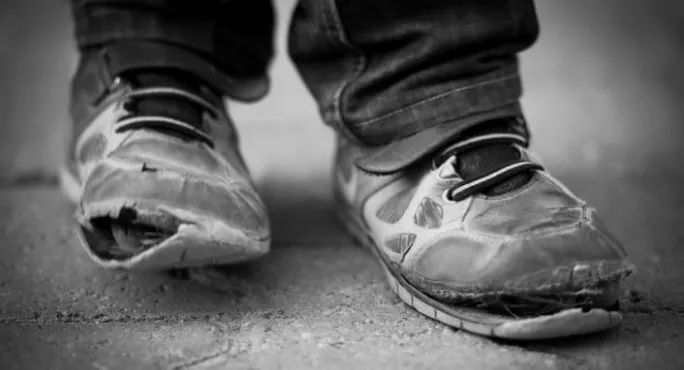- Home
- Teachers step in to provide soap for poor pupils
Teachers step in to provide soap for poor pupils

Half of British primary school teachers are helping pupils from cash-strapped families every week with essential items like soap, shampoo and washing powder to stay clean, according to a poll on “hygiene poverty.”
Eight in 10 teachers surveyed said they have seen an increasing number of children coming to school unwashed, in dirty clothes or not looking presentable over the past five years, and they are increasingly stepping in to help.
The survey of 100 teachers was conducted by the charity In Kind Direct, which distributes donated hygiene products to thousands of small UK-based charities. Most respondents (54 per cent) said they saw pupils’ self-esteem affected because of poor hygiene, and almost half (46 per cent) are aware of children being bullied because of hygiene.
Increasingly, teachers are stepping in to help children by providing: toothpaste (36 per cent); a new toothbrush (27 per cent); soap (29 per cent); laundry products (12 per cent), and headlice products (27 per cent.)
A separate survey of 2,000 parents with children of primary school age, conducted as part of the study, found that almost half (43 per cent) go without basic hygiene or cleaning products because they can’t afford them. Almost one in five parents can’t afford to wash their children’s clothes as often as they would like (19 per cent) and 14 per cent said they struggled to afford soap or shampoo.
As a result, more than a quarter (26 per cent) of pupils are wearing the same shirt or blouse for at least a week and 3 per cent for a fortnight or more, the poll found.
In Kind Direct is reporting a sharp rise in the numbers turning to them for support. Over three-quarters of teachers surveyed said they had referred families to charities similar to the ones that In Kind Direct provides supplies to. It found that the problem was starkest in London - where 50 per cent do this weekly - and in the North East, where 29 per cent do this every week.
‘Devastating negative effect’
Headteacher Nicola Finney said her school, St Paul’s C of E Primary School in Stoke on Trent, is seeing “significantly more children” coming into school with hygiene issues. Over the years, she has spent “hundreds of pounds” of her own money buying items for pupils and is aware of other colleagues doing the same to ensure pupils did not go without.
“Children as young as 5 are seeing themselves as being different. Other children might not want to sit with them and their comments can be very hurtful. This can also have a huge impact on parents’ mental health when they have such difficult choices to make,” she said.
“On one occasion I bought a washing machine for a family who had just had a newborn baby and had nowhere to wash their clothes. Now, as a headteacher, I don’t want to see my staff having to put their hands in their own pockets, even though I know they still do. We have a dedicated team in our school to address this and to look at pupils’ needs.”
Her school is among those receiving products from In Kind Direct.
Despite a “very tight school budget”, the school is providing personal hygiene and washing items, such as toiletries, washing powder and toothpaste, as well as spare uniforms, shoes and deodorant. Teachers across the country are “doing the same as us”, said Ms Finney.
Dr Richard Woolfson, a child psychologist, said “hygiene poverty” has a “devastatingly negative effect” on a child in terms of their health, confidence, social relationships and schooling overall.
“No child wants to be taunted because they are dirty, or because their clothes are filthy. They’ll start to lose interest in their education, their friendships will suffer, and they’ll be reluctant to attend school.”
Robin Boles, chief executive of In Kind Direct, said £2 billion of unwanted surplus consumer goods are produced in the UK each year. He urged more companies to help their communities by donating products. “Despite having worked with 9,000 charities so far, helping more than 2 million people every year, there is still so much more that can be done,” he added.
Keep reading for just £1 per month
You've reached your limit of free articles this month. Subscribe for £1 per month for three months and get:
- Unlimited access to all Tes magazine content
- Exclusive subscriber-only stories
- Award-winning email newsletters



